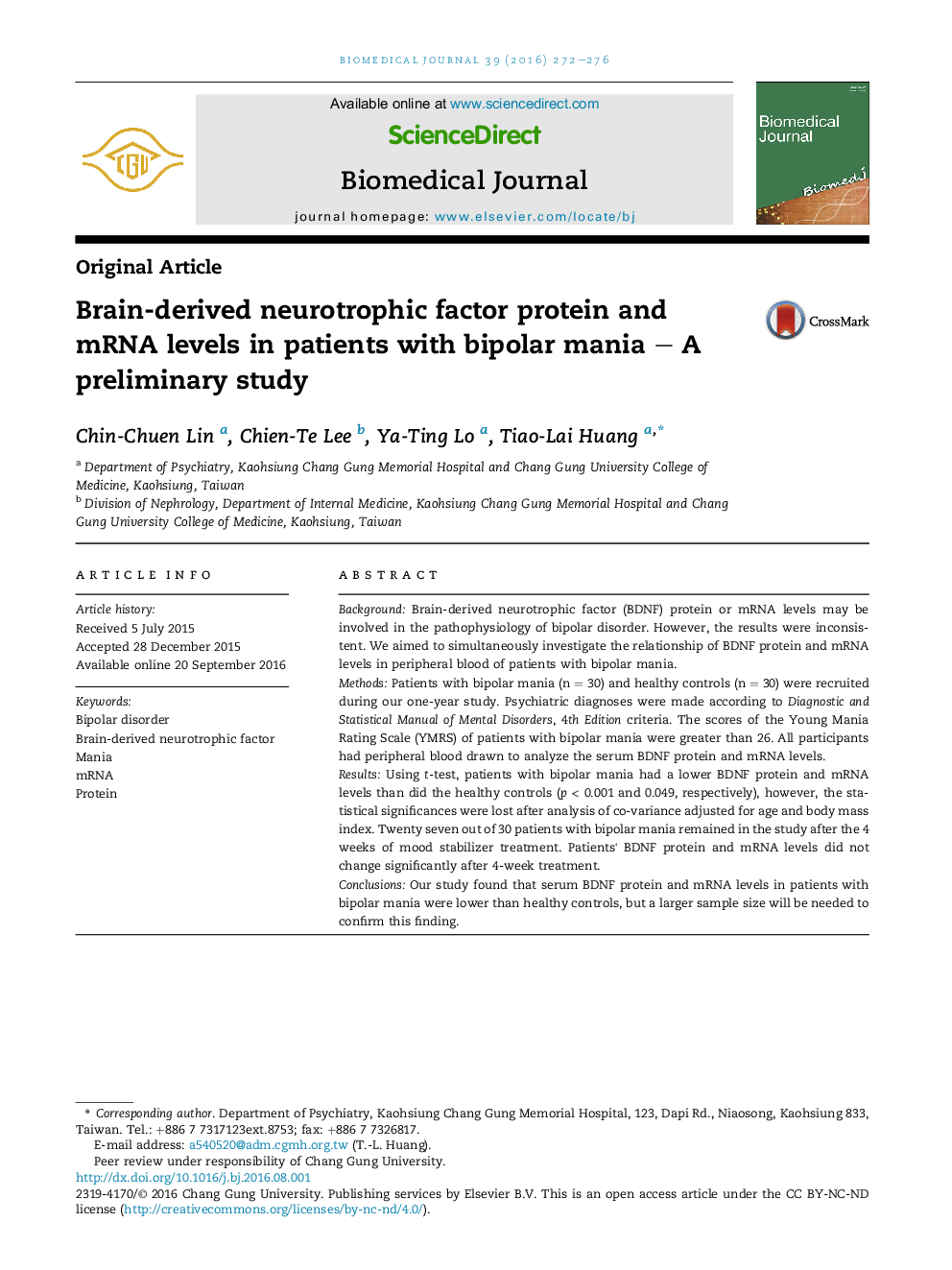| Article ID | Journal | Published Year | Pages | File Type |
|---|---|---|---|---|
| 5524609 | Biomedical Journal | 2016 | 5 Pages |
BackgroundBrain-derived neurotrophic factor (BDNF) protein or mRNA levels may be involved in the pathophysiology of bipolar disorder. However, the results were inconsistent. We aimed to simultaneously investigate the relationship of BDNF protein and mRNA levels in peripheral blood of patients with bipolar mania.MethodsPatients with bipolar mania (n = 30) and healthy controls (n = 30) were recruited during our one-year study. Psychiatric diagnoses were made according to Diagnostic and Statistical Manual of Mental Disorders, 4th Edition criteria. The scores of the Young Mania Rating Scale (YMRS) of patients with bipolar mania were greater than 26. All participants had peripheral blood drawn to analyze the serum BDNF protein and mRNA levels.ResultsUsing t-test, patients with bipolar mania had a lower BDNF protein and mRNA levels than did the healthy controls (p < 0.001 and 0.049, respectively), however, the statistical significances were lost after analysis of co-variance adjusted for age and body mass index. Twenty seven out of 30 patients with bipolar mania remained in the study after the 4 weeks of mood stabilizer treatment. Patients' BDNF protein and mRNA levels did not change significantly after 4-week treatment.ConclusionsOur study found that serum BDNF protein and mRNA levels in patients with bipolar mania were lower than healthy controls, but a larger sample size will be needed to confirm this finding.
